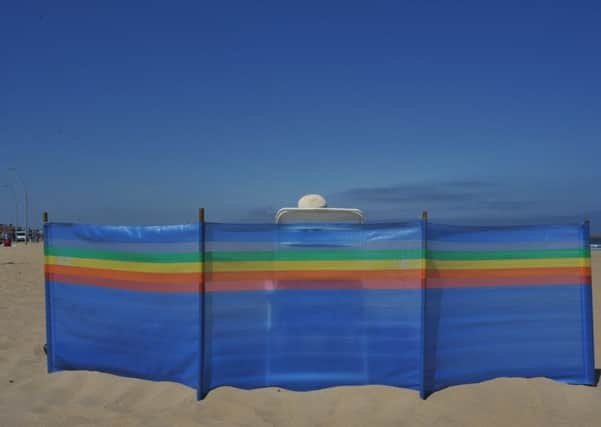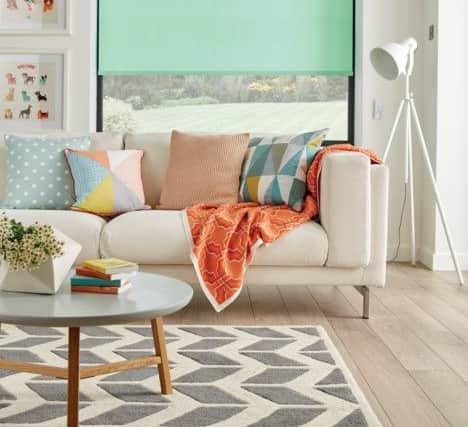When will it rain again Lancashire? How to keep your home cool and safe in a heatwave


We had one of the hottest Junes since records began in 1910 and while some parts of the region might see some light showers later this week, July is forecast to follow suit, but excessive heat brings problems for homes and their inhabitants.
According to Public Health England, even during a relatively cool summer, one in five homes are likely to overheat.
Advertisement
Hide AdAdvertisement
Hide AdResearch suggests that some properties are more vulnerable than others. Top-floor 1960s flats can become more than six times hotter than ground-floor flats, depending on orientation, and almost nine times warmer than Victorian terraced houses.


High temperatures can exacerbate skin problems and cause oedema, along with lethargy, poor sleep and fatigue. Some people are particularly at risk and for them a hot home can worsen existing health conditions, or even kill.
A relationship between hot weather and mortality was observed in England in the hot summer of 2006, with an estimated 75 extra deaths per week for each degree of increase in temperature. Part of this increase could be due to air pollution, which makes respiratory symptoms worse. The other main contributor is the effect of heat on the cardiovascular system.
In order to keep cool, large quantities of extra blood are circulated to the skin. This causes a strain on the heart, which for elderly people and those with chronic health problems can be enough to precipitate a cardiac event, such as heart failure.
Advertisement
Hide AdAdvertisement
Hide AdThose more at risk from the effects of heat include older people, especially those over 75, babies and young children and those people with a serious chronic condition, particularly dementia, heart, breathing or mobility problems and those on medication affecting sweating and temperature control, such as diuretics, anti-histamines, beta-blockers and anti-psychotics.
As our climate changes, hot spells are expected to be more frequent and more intense, so it is important to learn how to keep our home cool and the atmosphere healthy. Here are some tips:
*High temperatures are linked to increased levels of ozone and particulates. Air pollution forecasts for those who are sensitive to a drop in air quality are available from www.uk-air.defra.gov.uk. An air purifier can help but check that it doesn’t emit ozone.
*A rise in temperature can boost bacterial growth rates so make sure you keep food cool and check that your fridge is working efficiently. A report by Which? has warned that some fridges can’t keep stable temperatures when it’s hot outside. Avoid keeping the fridge door open for periods longer than 20 seconds and keep it full as this keeps it at a more even temperature. Invest in a fridge thermometer to check that the temperature is 4C or below. A freezer should be 17C or below.
Advertisement
Hide AdAdvertisement
Hide Ad*Fleas flourish in hot weather and those with pets are most susceptible to having their home infested. If this is serious then the usual over the counter remedies are rarely sufficient. See a vet and get a super-strength formula, such as Imidaclopid, to treat your pet with every four weeks and the fleas will eventually disappear.
*Up to 30 per cent of unwanted heat comes through our windows, so shade or cover those exposed to direct sunlight. External shutters are most effective and are common in hot countries. Blackout curtains and blinds are also efficient at blocking heat. Bear in mind that dark fabrics absorb heat so light-coloured window dressings are best.
*Open windows when the air feels cooler outside, although check this isn’t a security risk. Lights can give off heat so turn them off or change incandescent bulbs for fluorescent or LED versions. Heat rises so consider sleeping downstairs as upper floors will be hotter.
*A fan can be useful but do not aim it directly at the body. You can find desk fans at Argos for £14.99 or invest in a top of the range Dyson Cool AM07 for £339. Don’t forget to stay hydrated.
Advertisement
Hide AdAdvertisement
Hide Ad*Insulation can be effective in preventing overheating when it is combined with shading. External wall insulation can be better than internal wall insulation as it prevents heat getting in rather than trapping it inside. However, it is expensive so assess whether it is worth the cost.
*Public Health England say: “Remember that lots of public buildings, such as places of worship, local libraries or supermarkets, can be cool in summer; consider a visit as a way of cooling down.”